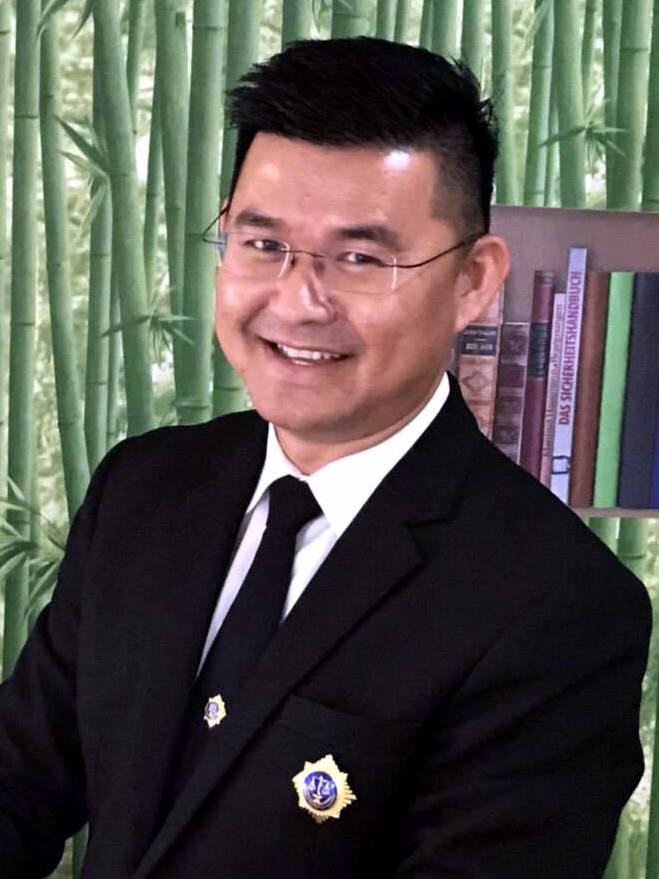

Q: Is a proxy marriage valid in Thailand?
A proxy marriage is one performed without one of the betrothed, or even both, being present at the ceremony. In fact, these arrangements have a long history and even Napoleon Bonaparte’s second marriage in 1810 was an example. Of course, Thai authorities do not perform proxy marriages in this country. But they can still be relevant in some legal contexts. Let’s take a closer look.
Four states in the USA perform proxy marriages and one, Montana, allows neither partner to be present. In a recent case handled by our office, an American serviceman in Japan had met a Thai lady but, owing to Covid rules, they had not been together for three years except for a brief two days’ meeting in Bangkok a few months ago after the proxy document was received. Their plan, after the husband’s military service, was to live in America as a married couple and the lady sought our help in applying for a longstay visa from the US embassy in Bangkok. The husband had obtained a proxy marriage certificate in Montana, but required more evidence for use in the visa application.
Obviously, the US immigration service needed to be satisfied that the relationship was genuine. There had to be evidence that the couple had been physically present in each other’s company – if only for two days – since the proxy marriage was issued. The husband, still serving in Japan, had to show that he was already treating his lady as a full partner. This was demonstrated by a joint bank account and credit card plus a property in the USA showing the wife as co-owner. In other words, the American embassy and the US immigration authorities accepted the proxy marriage as a basis for a settlement visa because there was supplementary evidence to show the relationship was not fake.
In a separate case, we handled the case of a Thai widow with a proxy marriage to an American who had died on active duty. While her husband was still alive, serving in Afghanistan, we had advised the lady to visit her local amphur office and certify that her status had indeed changed from single to married. In due course, she was able to inherit the estate even though there had never been a marriage ceremony at which both were present. The court was satisfied that she was a full partner in the relationship. We are not saying that a proxy marriage is always as legally sound as a traditional ceremony and it is always open to other relatives to challenge the will. However, in this case, the proxy arrangement was successful.
Q: Is getting married in Thailand easy?
With the right research or help, yes. The potential husband (assuming he is foreign) must obtain from his embassy a signed oath declaration which must then be translated into Thai and signed off by the Ministry of Foreign Affairs. After that is ready, the couple can attend a local amphur to register their marriage which then becomes legal. The evidence required for this whole process will likely be a certified copy of the husband’s passport, a standard form which will include the details of two witnesses who can attest the relationship is genuine, a processing fee, the future wife’s ID and sometimes proof of one partner’s income.
The Covid pandemic has thrown a spanner into the works of a once quick service. Many embassies are now reducing time slots for visitors and it may take several weeks to find a vacant slot via online booking. One or two embassies now allow online “swearing” and a visit is not strictly necessary. However, they will need to see proof that an actual appointment has already been made at an amphur office.
The Ministry of Foreign Affairs may take up to a week to complete a certificate required by the amphur, whilst some registration offices may not issue their final documentation until further checks have been made. This can take days or weeks. The reason for this extra bureaucracy is because a number of fake marriage applications have been discovered by officials. The most common reasons for fake applications is to allow the husband to stay here on a long-term visa or to “use” his wife as a proxy for business enterprises of one sort and another.
Our office has very considerable experience and expertise in local marriages between a foreigner and a Thai, or even when two foreigners wish to tie the knot. It’s all a question of detail and knowhow. But the main point to stress is that the whole process of marrying a partner can take longer than newcomers may be aware. Finally, it should be noted that Thailand does not currently allow same sex marriages or civil unions. However, a person in such a relationship can make a final will indicating any benefits accruing to the same sex partner. Just remember to obtain good advice on delicate matters.
 |
 |
 |





